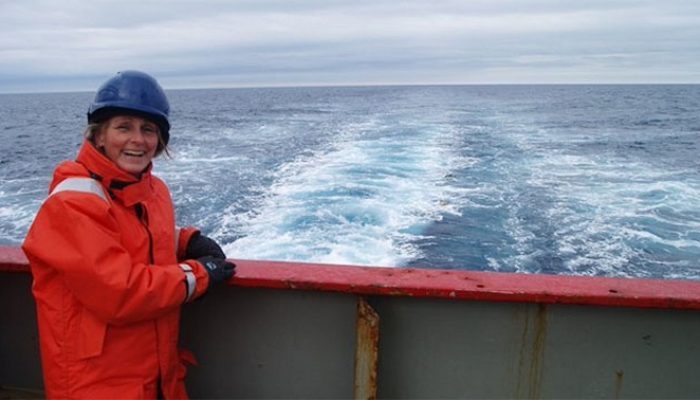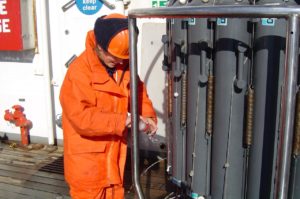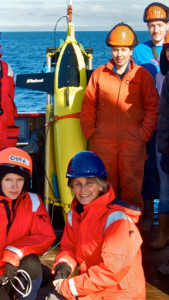
Karen J. Heywood FRS is a Professor of Physical Oceanography at the University of East Anglia, UK. Karen was president of EGU’s Ocean Sciences division from 2016-2021.
Can you tell us about your background and career path?
I did a physics degree back in the early 1980’s, and then wanted to apply that to something in the environment – when I heard about oceanography it appealed to me straight away so I applied to do a PhD in physical oceanography to find out more about the world. I liked that there seemed to be much more to explore, much more still to learn, than studying our older sister discipline meteorology. In those days oceanography wasn’t widely known about – people used to ask if I was doing marine biology – the oceans and climate weren’t in the news like they are now.
My career path has been pretty traditional – I did a postdoc, and then moved to the University of East Anglia for a lectureship in 1989, and I’ve been here ever since! I like the combination of doing research and mentoring young scientists. I feel very lucky to have experienced the rise of ocean science and the opportunities for international and important research we have now.
The best bits of my career have been going on research cruises to amazing places with great people, and seeing my PhD students succeed and go out into the world with new skills and confidence – that makes me feel like a mother hen!
Can you summarise your current research?
I love using new gadgets, so about a decade ago I got into ocean gliders. I am very excited about using them for multidisciplinary process studies in challenging locations, such as polar regions. My current research is using gliders and other autonomous platforms to make measurements of processes in the Antarctic, particularly in the regions beneath and around floating ice shelves. At the moment we’re planning a campaign in the Amundsen Sea this coming Antarctic summer, to try to understand the ocean’s role in enhancing the ice mass loss of Thwaites Glacier. This is going to involve sending two autonomous underwater vehicles underneath the ice shelf, as well as tagging seals, deploying gliders and lots of ship-based measurements.
What’s the biggest challenge you have faced as a researcher?
Mmm, I am not sure. I think I’ve actually been really lucky to be in the right place at the right time. Maybe not getting downhearted when my grant proposals aren’t funded or my papers are torn apart by reviewers – that’s always a challenge.
What was the highlight of your time as EGU OS president?
Oooh, that’s a difficult question, there were many highlights. Maybe getting to know the other EGU Division presidents, having so many laughs together (you wouldn’t believe committee meetings could be so much fun!)? Maybe something more intangible, the sense of belonging to a European science family and contributing to something collectively – all the more poignant when one’s own country is behaving like the small child in the playground who shouts at everyone and doesn’t have any friends. Or perhaps the sense of satisfaction when we managed to pull off an online EGU assembly as the pandemic hit in 2020 with only a few weeks to arrange it – everyone was so appreciative and it was wonderful to see the early career scientist engagement in the online chats.
Do you have any advice for ECS’s in ocean sciences?
I’d say, seize opportunities when they are offered, enjoy your science, and never stop learning. Some of the most exciting bits of research I’ve done have come when I got involved in things I didn’t know anything about so don’t be daunted by new areas. I’ve probably been a bit of a butterfly, flitting from thing to thing, but it’s more fun that way. Keep your eyes open for new technologies or new science challenges. It’s a great time to be an ocean scientist – there has been an explosion of new types of instrumentation and new generations of models, and the importance of understanding ocean processes is recognised like never before.
Thank you Karen for your contributions to the Ocean Sciences division and for the interview!
Interviewed and edited by Elizabeth Siddle


